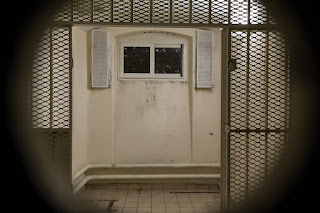Samenow on Solitary
Tuesday, October 17, 2023
Answering a series of questions from a thoughtful student, criminologist Stanford Samenow considers the question of whether solitary confinement should exist within the prison system.
I found his discussion enlightening both for its explanation of what such a measure should accomplish and for his acknowledgment of past abuses and popular stereotypes about it:
Ultimately, it would seem that prisons need solitary for the same reason general society needs prisons, which Ayn Rand once well explained:Security is the first consideration in running a humane prison. As many have said, people are sentenced to prison as punishment for their crimes; they are not sent to prison to be "punished" by other inmates who bully, psychologically torture them, rape them, and assault them. If there is an effective method to protect inmates doing their time from being injured or killed, then solitary confinement would not be needed. If one looks at the reality of who the criminal is and the formidable task of what it takes to operate a secure correctional facility, solitary confinement or something close to it is likely to be needed as one method of prisoner management for security.
Image by Édouard Hue, via Wikimedia Commons, license.
Solitary confinement has had an ugly history. In the past, inmates who incurred the wrath of prison employees for disobeying a direct order could be arbitrarily remanded to the "hole." Clearly, such a capricious use of isolation is not only an overreaction but also a violation of individual rights. In many institutions, inmates in solitary confinement are provided a clear path by which they can earn their way out and rejoin the general population. [bold added]
All actions defined as criminal in a free society are actions involving force -- and only such actions are answered by force.Considered in this way, it is easy to realize that ill-informed crusades against solitary in the name of treating criminals humanely can easily end up accomplishing the opposite of their alleged goals: making prison "cruel and unusual" for anyone having to cross paths with a prisoner who poses a threat to anyone around him.
Do not be misled by sloppy expressions such as "A murderer commits a crime against society." It is not society that a murderer murders, but an individual man. It is not a social right that he breaks, but an individual right. He is not punished for hurting a collective -- he has not hurt a whole collective -- he has hurt one man. If a criminal robs ten men -- it is still not "society" that he has robbed, but ten individuals. There are no "crimes against society" -- all crimes are committed against specific men, against individuals. And it is precisely the duty of a proper social system and of a proper government to protect an individual against criminal attack -- against force. [bold added]
-- CAV


No comments:
Post a Comment